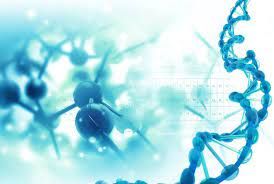Paclitaxel and GSK2636771 Combo Shows Benefit in Certain Patients with Gastric Cancer
The combination of paclitaxel and GSK2636771 showed encouraging antitumor activity and a manageable toxicity profile and in patients with PTEN-deficient advanced gastric cancer who progressed after first line chemotherapy.

The combination of paclitaxel (Abraxane) and GSK2636771 showed encouraging antitumor activity and a manageable toxicity profile and in patients with PTEN-deficient advanced gastric cancer who progressed after first line chemotherapy, according to data presented at the 2021 European Society for Medical Oncology World Congress on Gastrointestinal Cancer.
In a multi-center phase 1b/2 study (NCT02615730) of 42 patients, investigators found that the combination of paclitaxel chemotherapy and the novel PI3Kß inhibitor GSK2636771 had a median progression-free survival (PFS) of 12.1 weeks (95% CI, 11.1-13.2) and overall survival (OS) of 33.4 weeks (95% CI, 26.2-40.7) after a median follow up duration of 29.9 months (95% CI, 21.5-38.3). An objective response rate of 17.9% was observed among 28 patients with measurable disease who had the recommended phase 2 dose of 200 mg once daily combined with 80 mg/m2 of paclitaxel on days 1, 8, and 15 of the treatment. Nineteen patients (67.9%) exhibited disease control on the combination therapy. The median age of all enrolled patients was 59 years old (range, 32-88 years).
Patients with gastric cancer often have a loss of PTEN expression along with activation of their PI3K/AKT pathways. GSK2636771 is an inhibitor of these pathways and can be given orally in conjunction with chemotherapy. Patients included on the study failed to respond to first-line fluoropyrimidine and platinum chemotherapy, with 2 of 10 patients in the phase 1b part of the trial failing screening. Five patients were given 300 mg of GSK2636771 and 3 were given the second dose level of 200 mg GSK2636771.
Dose limiting toxicities were observed in a third of patients in the 300 mg arm and, after enrolling 2 more patients, grade 3 hypocalcemia was observed. In the 200-mg arm, no dose limiting toxicities were observed. The most common adverse events (AEs) of any grade were neutropenia (38.1%), peripheral neuropathy (28.8%), anorexia (21.4%), diarrhea (16.7%), and myalgia (14.3%).
PTEN expression was evaluated in patients via immunohistochemistry and the PTEN deficient patients were defined by having less than 100 of PTEN histoscore. The primary objective of the study was defining the recommended phase 2 dose and assessment of PFS. The secondary objectives focused on OS, ORR, disease control rate, and safety. Biomarker analysis of PTEN was also determined via somatic alteration of cancer by next-generation sequencing.
Patients considered to have PTEN-null tumors, those with a histoscore of 0, showed a favorable PFS of 18.9 weeks compared with a PFS of 11.6 weeks in other patients with PTEN-partial loss tumors with an histoscore of 1 to 99 (P = 0.026). Tumor shrinkage was seen in 50% of patients in the efficacy evaluating cohort who were envaulted for PTEN. Patients considered PTEN-null also had a more favorable OS of 36.1 weeks in comparison with the PTEN-loss group at 27.4 weeks.
The investigators concluded that complete loss of PTEN expression may be associated with the clinical benefit observed in patient on GSK2636771 and paclitaxel. The trial was conducted across 7 centers in South Korea, and further analysis of the association between the biomarkers and clinical outcomes is underway.
Reference
Jung M, Kim C, Kim H, et al. An open-label, multi-centre, phase Ib/II study of PI3Kb selective inhibitor GSK2636771 administered in combination with paclitaxel in patients with advanced gastric cancer having alterations in PI3K/Akt pathway. Abstract presented at: 2021 European Society for Medical Oncology World Congress on Gastrointestinal Cancer; June 30-July 3, 2021; virtual. SO-10. doi: 10.1016/j.annonc.2021.05.034